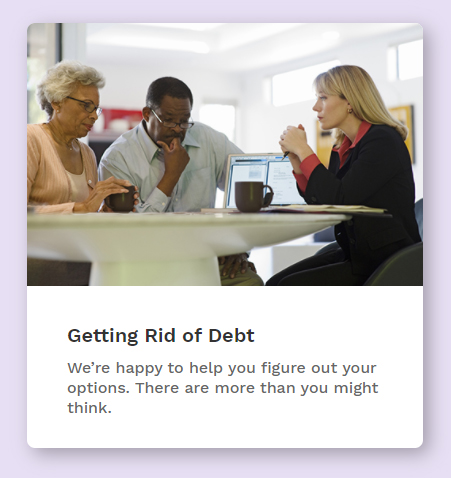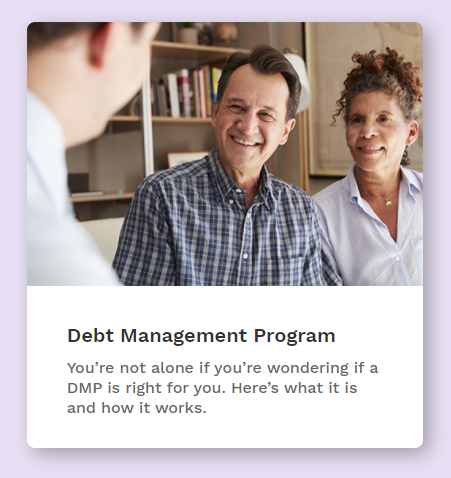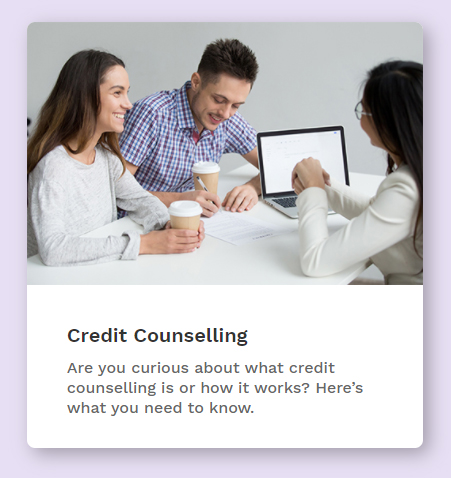Getting Out of Debt
9 ways to get out of debt and how to stay out of it.
How to Get Out of Debt & Stay Out of Debt
Debt solutions and strategies to get out of debt can vary for everyone, however, the sooner someone is able to deal with their debt, the more options they generally have available to them. Part of getting out of debt is learning new money habits, which help someone stay out of debt in the future.
Options for Getting Out of Debt
Some options for dealing with debt include:
1. Can Income Be Increased?
Increasing hours at work, taking on a part–time or second job, renting out a room or garage or asking an older child to find part–time income may be possible.
2. Which Expenses Can Be Decreased?
This may mean spending less on recreation or entertainment, not eating out for lunch or dinner as often and learning how to stretch the dollars at the grocery store a little further. It can also mean filing taxes to receive assistance with premiums or government funds which are based on income levels, e.g. medical premiums, child tax credits or GST refunds.
3. Are There Any Assets Which Can Be Sold?
Is there a recreational vehicle, a second car or other asset that can be sold and used for debt repayment? Selling something now to get through a financial crisis doesn’t mean that a similar item can never be bought again.
4. Is a Consolidation Loan an Option?
For home owners, is refinancing the mortgage a possibility? Refinancing might lower the monthly mortgage payment. A consolidation loan may reduce overall monthly debt payments, as long as no additional credit is used until the consolidation loan is repaid in full.
5. Are Creditors Able to Help?
Negotiate lower interest rates with creditors to pay debt off faster or obtain relief during a difficult time. This is particularly important early on with student loans.
6. Could Family or Friends Provide Assistance?
If funds are borrowed, be clear about repayment expectations. If direct financial assistance is not possible, help to reduce certain costs might be, e.g. child care relief or providing housing.
7. Is a Settlement for a Portion of the Balance Owing an Option?
Depending on the circumstances, creditors may accept a written proposal to settle outstanding balances owing for a reduced amount.
8. Could a Debt Repayment Plan be a Possibility?
For consumers with a surplus in their budget and the desire to repay their debts in full through a non–profit credit counselling organization, a voluntary debt management program supported by their creditors may be possible.
9. Is There a Need for a Legal Debt Remedy?
Depending on the nature of the debts and someone’s situation, a Consumer Proposal or filing for bankruptcy, might be options to consider. These legal remedies for debt are done through a trustee who is licensed through the Bankruptcy and Insolvency Act.
How to Stay Out of Debt
Now that you are trying to work out how you are going to get out of debt, does it feel like your pay cheque doesn’t seem to go quite as far as it used to? Maybe you’re just managing to live pay cheque to pay cheque. Part of staying out of debt means planning for rising living costs. Living costs have increased significantly for most Canadians.
- Gas prices have gone up.
- Housing costs, including utilities, maintenance, taxes and insurance have risen, not to mention the price of the home itself.
- Groceries and consumer goods and services have become more expensive.
- The cost of borrowing has changed. While rates have been lower for several years, what goes down will eventually go up again.
Small Increases Add Up
While many consumers feel that a few small increases won’t affect them very much, the cumulative effect can be significant enough to destroy a budget. Just spending a little more each month; $30 more on fuel, $75 more on housing, $150 more on loan or mortgage payments, plus an extra $100 at the grocery store – where will the extra $355 each month come from? What extras are you able to cut back on so that you have money to pay for necessities?
Don’t Rely on Credit to Make Ends Meet
When costs increase, rather than looking for ways to decrease their expenses, people turn to credit to supplement their income. Limit increases on credit cards, using one credit card to pay another, or depending on a line of credit to make ends meet, are not sustainable money management strategies.
Without a plan to manage the additional expenses, many people face an uncertain financial future. The good news, however, is that with a little preparation and planning, most people are able to avoid financial disaster.
Preparations to Avoid Financial Disaster Need to Include:
- Reducing debt and staying out of debt – trying some strategies above are a good start
- Eliminating costly contracts that may be difficult to maintain during a financial crisis – only commit to services / features that you really can’t do without
- Building up a savings account to cover 3 – 6 months of living expenses and financial obligations
- Having a budget so that you can quickly identify which extras you can do without if money gets tight
Over–committing to deferred payment plans or locking in to long–term contracts can make it difficult to reduce or get out of debt. Repay deferred interest loans before interest charges become payable. Avoid long–term obligations that you may want to eliminate from your budget during times of reduced income or when expenses increase.
Save for the Unexpected to Get Out of Debt & Stay Out of Debt
Building up a savings account may seem like a daunting task, especially when trying to eliminate debt at the same time. However, having savings is the one true trick for getting out of debt! Some tips to jump start a savings account include:
- Save unexpected funds, such as tax refunds, gift money or bonuses from work, in a separate account.
- If you are paid bi–weekly, you will have 2 extra pay cheques during the year – add them to your savings account.
- If you receive a pay increase, continue your budget as if you were still earning the lower amount.
- Make savings automatic – ask your employer or financial institution to direct deposit a set amount to your savings account each pay day.
How to Get More Help to Get Out of Debt, Stay Out of Debt, Create a Personal Budget or Find a Credit Counsellor
Eliminating what you owe to get out of debt, using credit wisely to stay out of debt and saving for the unexpected are all part of a responsible money management plan. And a good plan will reduce the possibility of a financial crisis. If you want help getting started with a budget that works for you, try our free, interactive budget calculator spreadsheet.
If an Excel spreadsheet isn’t your thing for creating a personal budget, we have our step-by-step workbook, webinars and workshops, budgeting resources or free, individual help from one of our professional Credit Counsellors.
Whatever works best for you, we’re happy to help. Our appointments are free, confidential and objective. They don’t obligate you to anything, so contact us today to ask us some questions or to make an appointment. We are here to help you!
Find out how to get debt relief.
Get the help you need. Find the right option that will work for your specific set of circumstances - whether that means setting up an amortization schedule, negotiating an interest rate, discussing terms like principal balance and amortization, or just talking through different fees, we’re here to help. Instead of endlessly looking through debt consolidation company reviews, let one of our experienced counsellors help you. If we can't fully help you, we'll refer you to an organization we trust that can or help you put together an action plan so you can get started on your next steps. Feel free to give us a call or chat with us online. We're here to help.
Last Updated on August 26, 2023
Get the clarity you need.
Speak with a non-profit credit counsellor.
If you’re overwhelmed by your current financial circumstances or have difficulty maintaining a monthly budget, we can help you by providing personalized tips for paying off credit card debt. We’ll review your financial situation with you and explore all the different ways you can get rid of your debt. There are even debt relief and debt repayment programs that might help.
Get Some Help – It’s Free
Get a free appointment to explore your options and get back on track.
Related Topics

Getting Rid of Debt
We’re happy to help you figure out your options. There are more than you might think.

Debt Management Program
You’re not alone if you’re wondering if a DMP is right for you. Here’s what it is and how it works.

Credit Counselling
Are you curious about what credit counselling is or how it works? Here’s what you need to know.




